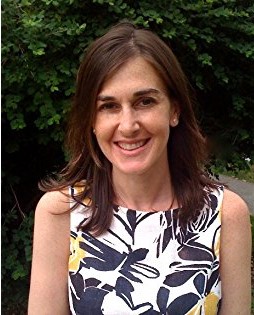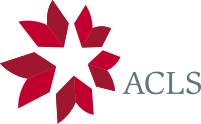Have fellowship, will travel
Katherine Unterman, associate history professor, was awarded the ACLS Fellowship to continue her research on past and present American territories.

By Hannah Falcon ‘21
One history professor is being recognized for her work on research trips to places including Puerto Rico, the Virgin Islands, Guam, and American Samoa.
College of Liberal Arts associate professor Katherine Unterman was recently awarded a fellowship from the American Council for Learned Societies (ACLS) to continue her research on past and present American territories. The fellowship will allow Unterman to completely focus on her research and writing her second book, “The Colonial Constitution: Law and Empire in the U.S. Territories.”
Unterman’s fellowship is called the ACLS Fellowship, and it acts as a salary replacement while she takes time off to focus on her book.
She’ll use the fellowship to complete her research in the Caribbean and write full time. Unterman’s past research trips were funded by an Arts and Humanities Fellowship from the college and the Ray Rothrock ‘77 Fellowship. She’s grateful to have gone on these trips, because her past knowledge made her stand out as an applicant.
“I think my application stood out because I have visited so many of the territories that I am writing about, rather than simply doing research with government documents in Washington, D.C.,” Unterman said. “When visiting the territories, I’ve had the opportunity to interview prominent officials and view archival documents that are impossible to access in the states.”
Through her book, Unterman wants to argue that law is an important tool of American international power. She’s focusing on a series of Supreme Court decisions which ruled that the Constitution does not fully apply in U.S. territories such as Puerto Rico, Guam, American Samoa, and the Virgin Islands—known as the Insular Cases.
Because of these rulings, the residents of these territories do not enjoy the same legal rights as mainland U.S. citizens.
“My project looks at the Insular Cases and how they affected people living in the territories,” Unterman said. “Ultimately, it helps us understand not only the territories, but also spaces like Guantanamo, where the U.S. government maintains control but the Constitution does not fully apply.”
ACLS was founded in 1919 and has supported the humanities and social sciences through scholarships and fellowships ever since. Now, it distributes more than $20 million every year to scholars studying “all areas of research and learning that ask fundamental questions about the way individuals and societies live, think, interact, and express themselves.” Unterman said she admires ACLS for their contributions to exciting scholarly work.
Since she is one of the 81 fellows chosen out of an extremely competitive pool of applicants consisting of over 1,100 humanists and social scientists, Unterman appreciates the College of Liberal Arts for helping her fund the research trips that made her application stand out.
“I am thrilled to receive this fellowship,” Unterman said. “Not only will it help me complete my book, it is also affirmation that other historians are very interested in my project and its findings. I knew that it would be a long shot, since the fellowship is so competitive and many very qualified people did not receive it. So above all, I am humbled and grateful that the ACLS selected me for the fellowship.”

